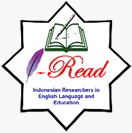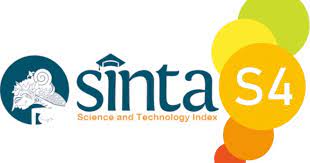ESP Course Design for Indonesian Hotel Industry: Need Analysis
DOI:
https://doi.org/10.22219/englie.v2i2.17041Keywords:
Company Training, Language Curriculum & Course Design, Hotel Industry, Need Analysis, ESP DevelopmentAbstract
English for Specific Purpose (ESP) runs to equip learners’ English language for their future needs in tertiary education. In the hotel industry, the laborers’ English capabilities are crucial as their duties deal with foreign guests. However, hotel employees’ English language inability was found in a small case. Thus, the ESP argues able to advance labor’s English language skills. This research aims to identify staff’s English needs in the front-desk department by identifying labors’ lacks, wants, and necessities. Furthermore, this paper also seeks the expected ESP course. The data were collected toward three staff and a hotel manager by using the qualitative method. Additionally, interview and participant observation has established in Kapal Garden Hotel, Indonesia. The result are 1.) Speaking and listening are primary skills for a front desk job. It is in line with work necessities that front desk staff’s duties are to communicate with foreign guests. The ESP course is expected to lead the students to pronounce vocabulary in hotels, respond to the conversation in the check-in and check-out situation, explain hotel facilities, direct the guest to a certain place, and understand the various foreign accents. 2.) The staff expects flexible teaching for ESP course design.
Downloads
References
Afrianto, A., & Gulö, I. (2019). Revisiting English Competence at Hotel. TEKNOSASTIK. https://doi.org/10.33365/ts.v17i1.248
Arnó-Macià, E., Aguilar-Pérez, M., & Tatzl, D. (2020). Engineering Students’ Perceptions of The Role of ESP Courses in Internationalized Universities. English for Specific Purposes. https://doi.org/10.1016/j.esp.2019.12.001
Arsiyana, M., & Hernadi, N. (2020). A Comprehensive Needs Analysis of French Course for Tourism and Hospitality Program. JURNAL ARBITRER. https://doi.org/10.25077/ar.7.1.51-61.2020
Chmelíková, G., & Hurajová, Ľ. (2019). ESP Teachers in the World of Globalisation and Higher Education Internationalisation. Journal of Teaching English for Specific and Academic Purposes. https://doi.org/10.22190/jtesap1904443c
Datu, Y. A. (2019). English Proficiency of Hotel Front-Liners: What and Why? Jurnal Bisnis Terapan. https://doi.org/10.24123/jbt.v3i02.2506
Fine, G. A. (2015). Participant Observation. In International Encyclopedia of the Social & Behavioral Sciences: Second Edition. https://doi.org/10.1016/B978-0-08-097086-8.44041-9
Lapele, F. (2019). Need Analysis on the Material Development of Teaching ESP Speaking. ETERNAL (English, Teaching, Learning, and Research Journal). https://doi.org/10.24252/eternal.v52.2019.a13
Lertchalermtipakoon, P., Wongsubun, U., & Kawinkoonlasate, P. (2021). Need Analysis: English Language Use by Students in the Tourism and Hospitality and Industry. English Language Teaching. https://doi.org/10.5539/elt.v14n3p59
Liu, X., & Liu, X. (2021). On the structure and modules of hotel management information system of reception. ACM International Conference Proceeding Series. https://doi.org/10.1145/3456887.3457113
Menggo, S., Suastra, I. M., Budiarsa, M., & Padmadewi, N. N. (2019). Needs analysis of academic-English speaking material in promoting 21 st century skills. International Journal of Instruction. https://doi.org/10.29333/iji.2019.12247a
Panagiotopoulos, G., Giannouli, D., & Karanikola, Z. (2018). the Contribution of in-Company Training To Skills Improvement and Human Resources Development. International Journal of Education, Learning and Development.
Petraki, E., & Khat, K. (2020). Challenges and constraints in the design of an ESP course in Cambodia: implications for higher education institutions. Asia Pacific Journal of Education. https://doi.org/10.1080/02188791.2020.1798738
Pham, H. A., & Ta, B. T. (2016). Developing a Theoretical Framework for ESP Teacher Training in Vietnam. Asian ESP Journal.
Process, B. (2010). Attitudes Toward Esp Among University Students. Fluminensia: Journal for Philological Research, 22(2), 145–161.
Puspitasari, I. (2018). Developing English for Tourism Materials trough Stakeholders: Needs Analysis. English Review: Journal of English Education. https://doi.org/10.25134/erjee.v7i1.1534
Rahmi, R., Abduh, A., & Sofyan, M. (2020). Student Perception of ESP Business English Teaching Implementation in Makassar National Informatics Polytechnic. Jurnal Ad’ministrare. https://doi.org/10.26858/ja.v6i2.12514
Sumarsono, P., Masyhud, Wardhani, A., & Farah, R. R. (2017). The Development of Authentic English Language Teaching (ELT) textbook of vocational school. International Journal of English Research, 3(6), 29–31. https://repository.usd.ac.id/9805/2/101214037_full.pdf
Downloads
Published
How to Cite
Issue
Section
License
Copyright (c) 2021 Yuyud Tri Guntoro

This work is licensed under a Creative Commons Attribution-ShareAlike 4.0 International License.
Authors who publish with English Learning Innovation (englie) agree to the following terms:
- For all articles published in English Learning Innovation (englie), copyright is retained by the authors. Authors give permission to the publisher to announce the work with conditions. When the manuscript is accepted for publication, the authors agree to automatic transfer of the publishing right to the publisher.
- Authors retain copyright and grant the journal right of first publication with the work simultaneously licensed under a Creative Commons Attribution-ShareAlike 4.0 International License that allows others to share the work with an acknowledgement of the work's authorship and initial publication in this journal.
- Authors are able to enter into separate, additional contractual arrangements for the non-exclusive distribution of the journal's published version of the work (e.g., post it to an institutional repository or publish it in a book), with an acknowledgment of its initial publication in this journal.
- Authors are permitted and encouraged to post their work online (e.g., in institutional repositories or on their website) prior to and during the submission process, as it can lead to productive exchanges, as well as earlier and greater citation of published work (See The Effect of Open Access).
This work is licensed under a Creative Commons Attribution-ShareAlike 4.0 International License.

















1.png)












